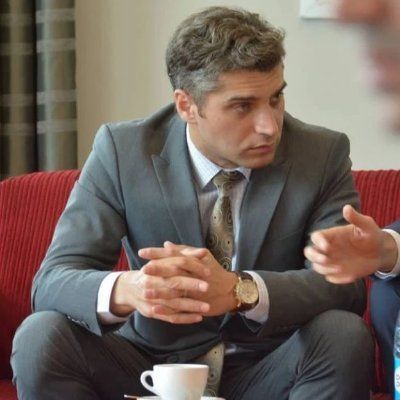After Baku's diplomatic patience, S Caucasus peace finally speaks with regional accent [ANALYSIS]
![After Baku's diplomatic patience, S Caucasus peace finally speaks with regional accent [ANALYSIS]](https://www.azernews.az/media/2025/07/10/img_7301.jpg)
In the world of diplomacy, success is not always forged on the battlefield, but it is often won in the quiet corridors of patient negotiation.
The recent meeting in Abu Dhabi between Azerbaijani President Ilham Aliyev and Armenian Prime Minister Nikol Pashinyan has been described as “constructive”, a modest term for what, in reality, marks a significant diplomatic breakthrough. With no mediators present, the two leaders discussed key pillars of the long-awaited peace agenda: border delimitation, the Zangazur Corridor, and the preliminary steps toward a formal peace agreement. This direct and candid exchange, hosted away from the theatre of geopolitical meddling, is not only a turning point in bilateral relations but it is a diplomatic validation of Azerbaijan’s post-war strategy.
Since Azerbaijan’s emphatic victory in the 44-day Patriotic War of 2020 and the subsequent liberation of Garabagh, President Ilham Aliyev has navigated the post-conflict landscape with a clarity of purpose rarely seen in the region. The military achievement may have restored Azerbaijan’s territorial integrity, but it is the ongoing diplomatic campaign, calm, consistent, and quietly effective, that is shaping the foundation of lasting peace.
Azerbaijan has made no secret of its preference for direct dialogue. In the nearly four years since the war’s end, Baku has on numerous occasions called for bilateral talks with Armenia; talks free from the inertia and interference of third-party mediation. While others sought to inject their own interests into the process, be it Western institutions angling for relevance or regional powers playing for influence, Azerbaijan stood firm in its belief that peace in the South Caucasus must be determined by those who live there, not those who observe from afar.
The meeting yesterday confirms the wisdom of that approach. In Abu Dhabi, Azerbaijan and Armenia reached a general understanding to carry forward the negotiation process through working groups and future high-level engagements. The fact that this came about without international mediation is, in itself, a significant shift. For too long, the peace process had been bogged down by well-meaning but ultimately ineffective diplomatic structures, most notably the defunct OSCE Minsk Group. Now, for the first time in decades, the two nations are speaking as equals, state to state, leader to leader.
That they are doing so is thanks in no small part to Azerbaijan’s renewed sovereignty and strengthened position. The successful military campaign of 2020 was not just about reclaiming land. It was about reclaiming voice and agency. Azerbaijan, under President Aliyev’s leadership, emerged from the war not only victorious but determined to ensure that its future would not be shaped in the shadows of history or the backrooms of distant capitals.
Rather than press its advantage aggressively or seek vengeance, Baku turned toward diplomacy with an eye on regional stability and economic opportunity. The Zangazur Corridor, linking mainland Azerbaijan with its exclave Nakhchivan and, by extension, Turkiye, has been at the heart of this vision. Far from being a mere transport project, the corridor symbolises connectivity, integration, and post-war cooperation. Discussing it in a constructive spirit with Armenia is a sign that both sides now see mutual benefit in economic pragmatism over political obstinacy.
Crucially, Azerbaijan has understood that peace must be built, not just declared. President Aliyev’s calls for reconciliation have been accompanied by immense investments in rebuilding Garabagh, where new airports, highways, and smart villages stand as a testament to a state confident in its future. At the same time, Azerbaijan has avoided triumphalism. There has been no gloating, no annexationist rhetoric, but only a steady insistence that the time for conflict is over, and the region must move forward.
The challenge, of course, lies ahead. The peace agreement is still to be finalised. Delimiting borders in such a sensitive geography will not be easy. But the very fact that Armenia has now agreed to direct negotiations on these matters, particularly after months of hesitation and political distractions, indicates that Baku’s patience is bearing fruit.
Azerbaijan’s success here is not loud, but it is lasting. It has been shown that military strength must be complemented by diplomatic wisdom. That winning a war is one thing, but securing peace requires resilience, vision, and the ability to rise above provocation. In President Ilham Aliyev, Azerbaijan has found a leader capable of all three.
The international community would do well to recognise this achievement for what it is: the beginnings of a peace forged not by distant powers, but by the very nations who endured the conflict. It is a rare thing in today’s world, and all the more worthy of support.
As the two sides prepare for the next stage of negotiations, one truth is becoming clear: Azerbaijan has not only restored its lands, but it has restored the primacy of direct diplomacy in a region long suffocated by external agendas. That alone is a victory worth noting.
Here we are to serve you with news right now. It does not cost much, but worth your attention.
Choose to support open, independent, quality journalism and subscribe on a monthly basis.
By subscribing to our online newspaper, you can have full digital access to all news, analysis, and much more.
You can also follow AzerNEWS on Twitter @AzerNewsAz or Facebook @AzerNewsNewspaper
Thank you!

